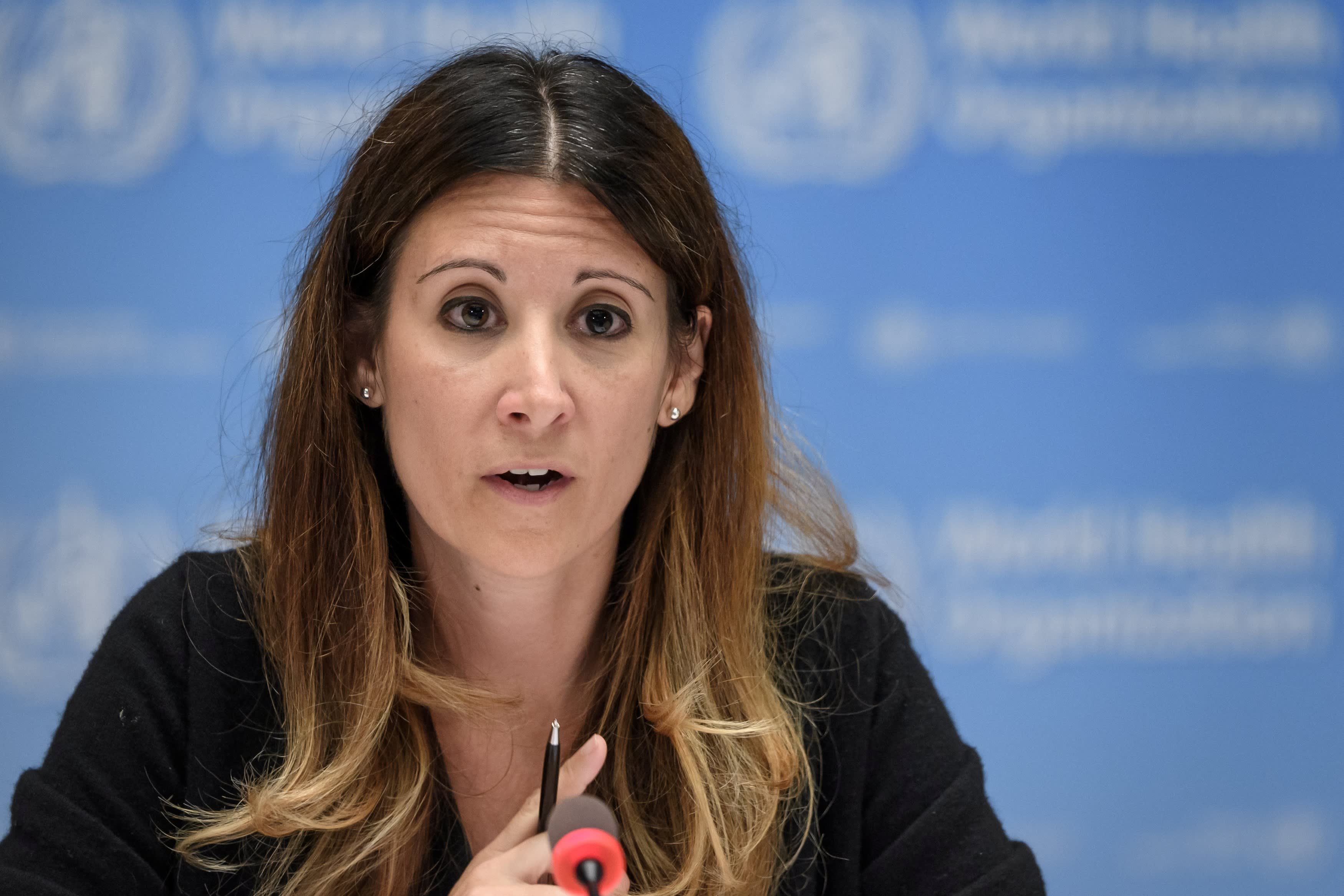
WHO Technical lead head COVID-19 Maria Van Kerkhove attends a news conference organized by Geneva Association of United Nations Correspondents (ACANU) amid the COVID-19 outbreak, caused by the novel coronavirus, at the WHO headquarters in Geneva, Switzerland July 3, 2020.
Fabrice Coffrini | Reuters
The World Health Organization on Tuesday said there’s no indication omicron’s new sister variant, BA.2, causes more serious infections than the original version, though initial data shows it’s more transmissible.
The WHO and other researchers around the world have found that omicron generally doesn’t make people as sick as the delta variant, though it does spread faster than previous strains of the virus and can evade some of the immune protection provided by vaccines.
Maria Van Kerkhove, the WHO’s Covid-19 technical lead, indicated on Tuesday that those findings likely hold true for the omicron sister variant, labelled BA.2 by scientists. Van Kerkhove said information is limited, but initial data indicates that BA.2 is “slightly” more transmissible than the original omicron variant, what scientists formally refer to as BA.1, which is currently the dominant version worldwide.
However, there’s no indication that BA.2 is any different from the original omicron in terms of severity, Van Kerkhove said, and the vaccines remain effective at preventing severe disease and death from omicron and all of its subvariants. The WHO is working with scientists around the world to track BA.2 infections and will share more information as it becomes available, she said.
“We need people to be aware that this virus is continuing to circulate and it’s continuing to evolve,” Van Kerkhove said during a Covid update in Geneva on Tuesday. “That’s why it’s really important that we take measures to reduce our exposure to this virus, whatever variant is circulating.”
BA.2 has become the dominant version of omicron in Denmark, outpacing the original version, BA.1. Danish scientists, in a study published this week, found that BA.2 is substantially more transmissible and is more adept at infecting people who are vaccinated or boosted.
However, vaccinated and boosted people are actually less likely to spread BA.2 once infected compared to people who have the BA.1 strain. The unvaccinated, on the other hand, transmit BA.2 more efficiently than the original omicron, likely due to a higher viral load, according to the study.
The Danish scientists said BA.2, like the original omicron, appears to be associated with milder infections than the more severe delta variant. “The combination of high incidence of a relative innocuous subvariant has raised optimism,” they wrote.
The WHO has repeatedly warned that new Covid variants will likely emerge as omicron spreads rapidly around the world. Van Kerkhove said last week the next variant will be more transmissible, but it’s an open question on whether it will be more severe.
The WHO labeled omicron, including its sublineages, a variant of concern in November. The BA.2 subvariant has not been separately categorized as such because it falls under omicron, the WHO said.
“BA.2 is one of the sublineages of omicron, so BA.2 is omicron, and it is a variant of concern,” Van Kerkhove said on Tuesday. “It’s in the family of the variants of concern around omicron.”




